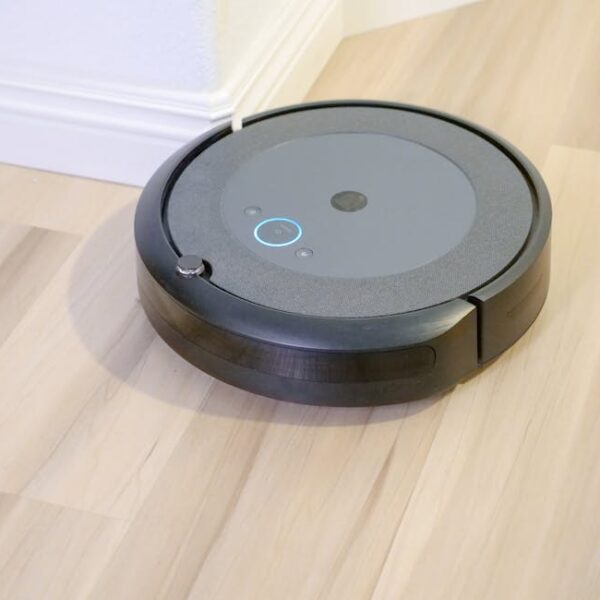Have you ever experienced the phenomenon of having a bowel movement, reaching for the toilet paper, and finding nothing to clean? Fret not, you aren’t alone. Reported from the depths of many bathrooms, this encounter isn’t a mystic happening but a more digestible event known as ‘Ghost Poop.’ A ‘Ghost Poop’ is the end product of a healthy and high-functioning digestive system, leaving a clean wipe post-bowel movement. This often results from a diet rich in fiber, solid water intake, and a well-maintained exercise routine.
- **Dietary Habits**: A balanced diet, especially one high in fiber-rich fruits and vegetables, helps shape a smooth stool that doesn’t stick to the rectal walls.
- **Exercise Routine**: Regular physical exercise stimulates intestinal muscles, aiding bowel movements.
- **Water Intake**: Adequate hydration softens stool and allows for an easy release without traces left behind.
Unveiling the Association Between ‘Ghost Poop’ and Healthy Stool
Typically, a healthy stool is soft and S-shaped, moderately sized, brown in color, and occurs with regular frequency. While these are general markers, individual differences do exist, and there is no one-size-fits-all stool. ‘Ghost Poop,’ with its ghostly disappearance act, fits into these standards. Passengers of Ghost Poop generally experience smoother, easier passes and less after-toilet cleanse, which aligns with the signs of a healthy stool.
- Soft and smooth consistency
- S-shaped
- Moderate size
- Brown color
- Regular frequency
‘Ghost Poop’ – a Marker or a Mirage for Good Health?
‘Ghost Poop’ can be a badge of honor for your digestive system, signifying a healthy diet and hydration status. However, don’t be fooled into using it as the sole barometer of your wellness. Diseases like Irritable Bowel Syndrome (IBS) or Celiac Disease can coexist with ‘Ghost Poop,’ hence always consider overall symptoms and consult a healthcare professional for comprehensive health evaluations.
- **’Ghost Poop’ Pros**: Indicator of good hydration and fiber intake, easier and cleaner bowel movements, and desirable for personal hygiene.
- **’Ghost Poop’ Cons**: Should not be the only parameter to determine health, ignores other health markers, might overshadow some digestive disorders.
- **Healthy Stool Indicators**: Regular and easy bowel movements, soft and S-shaped stool, minimal residue after wiping.
- **Unhealthy Stool Indicators**: Hard or loose stools, straining when defecating, blood in stools, excessive mucus, unexpected changes in frequency or color.
Truth Versus Myth: ‘Ghost Poop’ Unraveled
‘Ghost Poop’ doesn’t signal the absence of gut flora or scream nutrient deficiency. Instead, it’s a reflection of your food intake, digestion, and overall gastrointestinal health. It’s normal and is often a result of dietary fiber and sufficient hydration, not severe health conditions.
- **Myth 1**: ‘Ghost Poop’ means you lack gut bacteria.
- **Myth 2**: ‘Ghost Poop’ suggests nutrient deficiency.
- **Fact**: ‘Ghost Poop’ usually stems from adequate dietary habits and water intake.
Is ‘Ghost Poop’ Always a Ghostly Blessing?
As mostly an indicator of good health, ‘Ghost Poop’ can sometimes be a deceptive creature if it accompanies worrying symptoms. While the ghostly passage might surprise many, it could potentially be a concern if paired with unexplained weight loss, stubborn diarrhea, or the sight of blood in the stool. Such symptoms could hint at gastrointestinal conditions like Irritable Bowel Syndrome (IBS) or Celiac Disease, which require professional medical help for diagnosis and management.
- **Concern 1**: Unexplained weight loss alongside frequent ‘Ghost Poop.’
- **Concern 2**: Persistent diarrhea or constipation with ‘Ghost Poop.’
- **Concern 3**: The presence of blood in the stool despite consistent ‘Ghost Poop.’
Interpreting the Ghostly Message and Acting Upon It
So, what’s the takeaway from our spooky investigation into ‘Ghost Poop’? This pleasantly surprising phantom in your bathroom is mostly a good sign, whispering sweet tales of your high fiber diet and healthier digestion process. However, you need to remain mindful of your overall health and not take ‘Ghost Poop’ as the only indicator of wellness.
- **Acknowledge It:** Don’t be alarmed by ‘Ghost Poop.’ Most times, it’s your body’s way of appreciating your healthy habits.
- **Observe Your Stool Regularly:** Detecting drastic changes in your stools can help you understand your digestive health better.
- **Maintain a Balanced Lifestyle:** A diet rich in fiber, combined with regular exercise and sufficient water intake, can promote better digestion.
- **Consult a Healthcare Professional:** If you experience persistent abnormal bowel movements or other concerning symptoms, please seek medical advice.
Unmasking the mystery of ‘Ghost Poop’ leads us toward improved understanding of our digestive health. So let’s embrace the ghost, appreciate good bowel movements, and stay alert for any concerning gastrointestinal signposts. After all, what better way to confront a ghost than with knowledge?
Key Takeaway:
- ‘Ghost Poop’ refers to a bowel movement that leaves little to no residue, often indicating a healthy digestion process and dietary habits rich in fiber and adequate hydration.
- Regular exercise, a balanced diet, and good hydration encourage healthy bowel movements, potentially leading to ‘Ghost Poop.’
- While ‘Ghost Poop’ is a positive sign, it should not be the sole indicator of overall health. It’s important to heed other health markers and seek professional medical advice should there be consistent, abnormal bowel changes.
- In some cases, ‘Ghost Poop’ might accompany concerning symptoms such as unexplainable weight loss, persistent diarrhea, or blood in the stool, indicating potential health issues like IBS or Celiac Disease.
The phenomena of ‘Ghost Poop,’ though surprising, tend to indicate a well-functioning, balanced system. However, maintaining a broader perspective on our health is crucial. Stay informed, observant, and don’t hesitate to consult healthcare professionals when needed. After all, ‘Ghost Poop’ is just a piece of the digestive health puzzle!
FAQs
Q: How often does ‘Ghost Poop’ occur in a healthy individual?
A: The frequency of ‘Ghost Poop’ varies, depending on several individual factors, including diet, hydration, and exercise routine. Regular occurrences can be a sign of a healthy digestive system. Still, it is not a universal standard and varies among individuals.
Q: Can the lack of ‘Ghost Poop’ indicate digestive problems?
A: Not necessarily. The absence of ‘Ghost Poop’ doesn’t immediately signal digestive issues, as numerous factors impact bowel movements. If you experience persistent abnormalities or discomfort alongside bowel movements, consult a healthcare professional for advice.
Q: Is there a way to increase the chances of ‘Ghost Poop’ through diet?
A: Incorporating more fiber-rich foods into your diet, staying well-hydrated, and maintaining a regular exercise routine may encourage ‘Ghost Poop.’ This is due to the promotion of a healthy digestion process.
Q: Does medication affect the occurrence of ‘Ghost Poop’?
A: Certain medications might impact bowel movements, either promoting or reducing the occurrence of ‘Ghost Poop.’ If you have concerns about how your medication affects your digestion, speak with a healthcare provider.
Q: Does ‘Ghost Poop’ occur in children and infants?
A: Yes, ‘Ghost Poop’ can occur in individuals of all ages. It’s often a reflection of a healthy diet and good hydration. If you have any concerns about your child’s bowel movements, contacting a pediatrician is advisable.
Remember, every ‘Ghost Poop’ tells a story about your digestive health. Decoding these ghostly messages can be key to enhancing your wellness journey! Stay informed, keep exploring our articles, and share this knowledge to help others navigate their path to better health.












